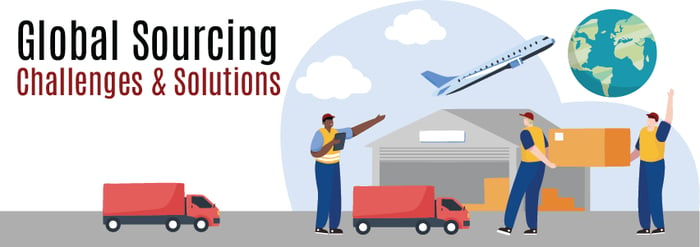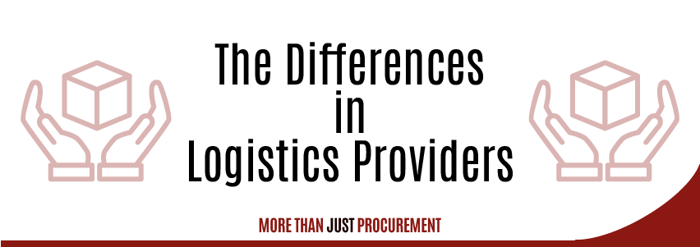2023 Supply Chain Trends
Tips & Tricks • 6 min read • Dec 19, 2022 8:40:01 AM • Written by: Amelia Inskipp

With a new year soon approaching, we investigate some of the trends that we think could occur in the supply chain industry in 2023.
Sustainability & Climate Change
Like most industries, climate change is at the forefront of people's concerns. For the supply chain industry in 2023, this will be no different. If not already, companies need to start prioritising sustainable practices, especially as businesses and customers are becoming incredibly more conscious about the way they consume products, so adopting more eco-friendly practices can lead to more customer loyalty.
Logistics and transportation are huge contributors to greenhouse gases, so green logistics is crucial in moving forward. Eco-friendly warehousing, such as electric machinery, can make a difference in reducing the overall carbon output of supply chains. Embedding green logistics across the whole supply chain and not just in one area, such as transportation or warehousing, can massively improve overall emissions.
In 2022 the supply chain industry was faced with the realities of climate change, causing a threat to the efficiency of the industry. Floods, fires and hurricanes are making supply chains come to a standstill. Therefore, a rise in climate supply chain planning is expected to take place for businesses to prepare for potential disruptions and allow for a decline in crisis occurring.
Governments are calling for more action in businesses to prove they are operating sustainably. The European Union is working on a legislation where it could see businesses monitoring their entire supply chain, including reporting on partners who are causing environmental damage.
AI
In 2022 investing in technology, more specifically cloud technology to digitally transform the procurement process, was a trend that will continue into 2023. This technology will help to predict growing concerns around inflation. However, the technology implemented by the supply chain industry is only scratching the surface compared to the potential possibilities. Therefore, more investments should be made into technologies to help aid operational tasks, as well as analytics to support operational stability.
The biggest technological advancement in 2023 for supply chains will be the introduction of AI (artificial intelligence). AI has already infiltrated many industries, so for supply chain companies, now is the time to act. This technology has the ability to imitate human intelligence and ‘learn’ complex tasks a human would not be able to carry out.
Integrating AI into your processes can be applied to intelligent procurement, inventory management and supply chain management procedures. Future developments are also on the horizon for AI to automate supply chains, such as reducing the need for drivers through autonomous fleets, which can also significantly increase fuel efficiency.
Adopting AI in just one of the many elements of the supply chain process can significantly conserve time and money whilst optimising your supply chain to its full potential.
Trade Security
Inflation is influencing the world's economy and impacting the way supply chains operate. Many industries are still feeling the effect of the global disruptions from COVID-19 and the ongoing war between Ukraine and Russia. With such economic uncertainty looming globally, supply chain companies will need to keep a close eye on this in 2023. Rising fuel costs, as well as higher labour costs, are examples of inflation directly impacting supply chains.
With inflation, there are many uncertainties, so businesses that prepare for insecurity, much like preparing for the climate crisis, can help to minimise any possible impact.
However, with fiscal indecisiveness affecting both business and consumers, inflation will almost certainly lead to a reduction in purchaser demand resulting in oversupply in 2023. Therefore, this is crucial for procurement professionals to invest in forecasting tools in order not to over or understock inventory. Failing to do so can lead to more economic problems.
Partnerships
Despite economic problems, eCommerce is growing rapidly, with stats estimating eCommerce to make up 40% of all retail sales by 2026.
This will mean an increase in demand for delivery carriers. Therefore, third-party services will be a crucial movement going into 2023 to help companies reduce costs and improve the services for clients, such as streamlining the supply chain by reducing delivery times. Companies will partner with third-party logistics providers (3PLs) to take full advantage of these organisations' supply chains.
Using multiple task forces allows companies more flexibility in the delivery process, all whilst providing more options for delivery in peak seasons. Although having multiple delivery partners can add complexity in managing delivery platforms, this will optimise their supply chain to meet customer needs and overcome any challenges.
Reach the World. Giving Made Easy with Impact.
Amelia Inskipp
Related Articles

Business News
Top 5 Procurement Trends

Tips & Tricks
Global Sourcing - Challenges and Solutions

Business News
The Differences in Logistics Providers
Don't Miss Out On A Thing
Sign up and Join Our Newsletter Today